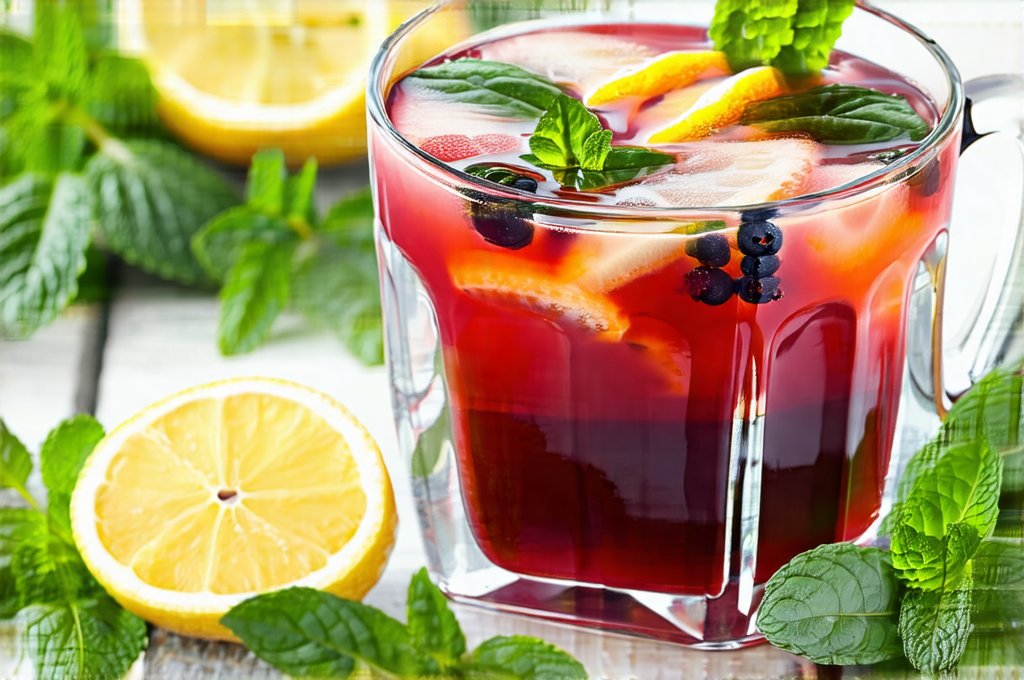Post-meal fullness, that sometimes pleasant but often uncomfortable sensation after eating, is a common experience for most people. It’s a natural consequence of digestion, as our bodies work to break down the food we’ve consumed. However, when this fullness transitions into bloating, sluggishness, or even discomfort, it can significantly impact our productivity and overall well-being. Many factors contribute to post-meal feelings – the quantity and type of food eaten, eating speed, individual digestive sensitivities, and stress levels all play a role. While mindful eating habits and portion control are essential long-term strategies, incorporating specific herbal drinks can provide gentle, soothing relief after a meal, aiding digestion and promoting a sense of calm.
The good news is that centuries of traditional medicine offer a wealth of knowledge about herbs with digestive properties. These aren’t quick fixes, but rather subtle aids designed to work in harmony with the body’s natural processes. Herbal drinks can help reduce inflammation, ease muscle spasms in the digestive tract, and encourage healthy gut motility, all contributing to reduced post-meal discomfort. It’s crucial to remember that herbal remedies are not a replacement for addressing underlying health concerns or making dietary changes; they are supportive tools to complement a holistic approach to well-being. Understanding how different herbs interact with the body allows us to make informed choices and create personalized blends tailored to our specific needs and preferences.
Digestive Allies: Herbs for Soothing Fullness
The key to effective herbal support after a meal lies in selecting herbs that specifically target common digestive complaints. Many traditional systems of medicine, such as Ayurveda and Traditional Chinese Medicine (TCM), have long utilized botanical remedies to address imbalances related to digestion. Herbs like ginger, peppermint, chamomile, and fennel are widely recognized for their ability to ease bloating, reduce gas, and promote healthy gut function. These herbs don’t merely mask symptoms; they actively support the digestive process.
Fennel, for example, contains anethole, a compound known to relax intestinal muscles, reducing spasms that can contribute to discomfort. Peppermint’s menthol content has similar properties, while gingerols in ginger stimulate digestion and reduce nausea. Chamomile’s gentle calming effect extends beyond the nervous system; it also soothes the digestive tract, easing inflammation and promoting relaxation. Combining these herbs thoughtfully allows for a synergistic effect, addressing multiple aspects of post-meal discomfort simultaneously. Consider brewing a tea blend incorporating several of these options to create a personalized digestive aid. If you find that common cold drinks exacerbate your symptoms, consider herbal alternatives.
The preparation method also matters significantly. Gentle brewing methods – such as infusing herbs in warm (not boiling) water – preserve their delicate volatile oils and therapeutic compounds. Avoid over-steeping, which can sometimes result in a bitter taste and potentially diminish the herb’s effectiveness. Experiment with different steeping times to find what works best for you and your chosen herbs. Ultimately, consistency is key; incorporating these herbal drinks into your routine after meals can provide long-term support for digestive health.
Gentle Digestive Support: Chamomile & Fennel
Chamomile is renowned for its calming effects on the nervous system, but it’s also a remarkably gentle aid to digestion. Its anti-inflammatory properties can help soothe an irritated gut lining, reducing bloating and discomfort. – It’s particularly helpful after meals that are rich or spicy. – Chamomile tea is easy to prepare: simply steep 1-2 teaspoons of dried chamomile flowers in 8 ounces of warm water for 5-10 minutes.
Fennel seeds, on the other hand, offer a more direct approach to digestive relief. They contain anethole, which as mentioned earlier, helps relax the intestinal muscles and reduce gas production. – Chewing on a few fennel seeds after a meal is a traditional practice in many cultures. – You can also brew fennel seed tea by steeping 1 teaspoon of crushed seeds in warm water for 10-15 minutes. Combining chamomile and fennel creates a synergistic effect, addressing both the physical discomfort and the potential stress that accompanies digestive upset. If you’re experiencing ongoing issues, explore natural ingredients that may offer additional relief.
Ginger’s Fiery Relief: Aiding Digestion & Reducing Nausea
Ginger has been used for centuries as a remedy for nausea and indigestion. Its active compounds, gingerols, stimulate gastric emptying – the process by which food moves from the stomach to the small intestine – preventing feelings of fullness and bloating. – This makes it particularly effective after heavier meals or those containing high amounts of fat. – Ginger tea can be made using fresh ginger root (grated or sliced) or dried ginger powder.
Beyond aiding digestion, ginger also possesses anti-inflammatory properties, helping to soothe an irritated digestive tract. It’s a versatile herb that can be incorporated into various beverages – from simple teas to more complex blends with lemon and honey. The warmth of ginger itself is often comforting and can help alleviate feelings of discomfort. Remember to start with small amounts of ginger, as excessive consumption can sometimes cause heartburn in sensitive individuals. Guided imagery techniques can also complement these herbal remedies for a holistic approach.
Peppermint’s Cooling Comfort: Relieving Bloat & Gas
Peppermint is widely recognized for its ability to relieve bloating and gas. Menthol, the primary active compound in peppermint, has antispasmodic properties, relaxing the muscles of the digestive tract and allowing trapped gases to pass more easily. – This makes it a particularly valuable aid after meals that tend to cause excessive gas production. – Peppermint tea is readily available commercially or can be made by steeping 1-2 teaspoons of dried peppermint leaves in warm water for 5-10 minutes.
However, it’s important to note that peppermint isn’t suitable for everyone. Individuals with gastroesophageal reflux disease (GERD) should exercise caution, as peppermint can sometimes relax the lower esophageal sphincter, allowing stomach acid to flow back into the esophagus. – For these individuals, gentler options like chamomile or fennel might be more appropriate. – Peppermint tea is best enjoyed between meals rather than immediately after, to avoid exacerbating reflux symptoms. Understand whether can cold drinks worsen GERD and adjust accordingly. You may want to explore foods that soothe the stomach as well.
Herbal drinks offer a natural and gentle way to support healthy digestion and alleviate post-meal fullness. However, it’s crucial to approach herbal remedies with respect and awareness. Remember that individual responses vary, and what works for one person may not work for another. Always source herbs from reputable suppliers to ensure quality and purity. While these drinks can provide significant relief, they are most effective when combined with mindful eating habits, a balanced diet, and regular physical activity. Prioritizing overall health and well-being is the foundation of a happy and comfortable digestive system. Top herbal supplements may not always be beneficial; research carefully before use. Consider exploring herbal teas that help food sensitivities for additional support.


















